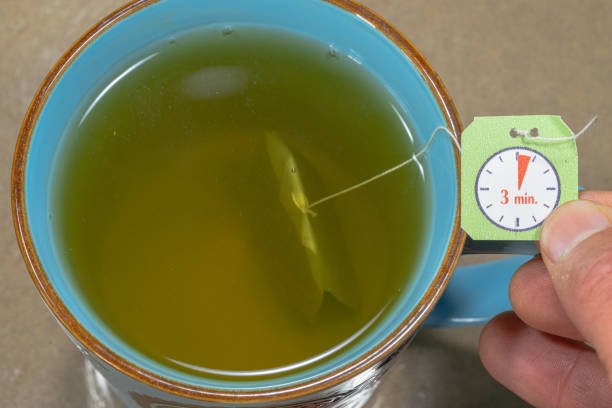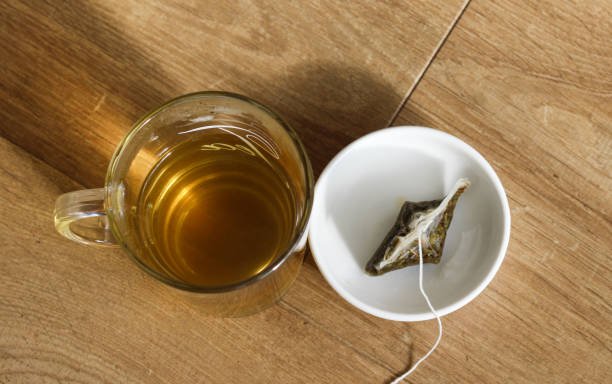Does tea break intermittent fasting
This concept of dieting has recently gained more popularity because people find it easier to perform the function of fasting now and then than cutting on the number of calories they consume on a daily basis. But there is always one question that appears about what is allowed and what is prohibited to eat during the fasting windows. A particularly common query is: does tea break intermittent fasting? Though tea is healthy, it is important to know how it is helpful during fasting for those individuals. Afterward, we will get into how different teas affect intermittent fasting, which teas are examples of those that will break the fast or not, and provide the answers to few commonly asked questions.

Intermittent fasting: what is it and why does it work?
A technique of eating and starvation known as the intermittent fasting (IF) provides the body a natural cycling like cell recharge and the shedding of fat.Unlike other plans that eliminate certain foods from one’s plate or reduce the portion size, IF is centered on timing. Popular IF methods include the 16:8, you can eat only within a specific 8 hours and the 5:2 where you eat only 500-600 calories in a week for two days.
A question most individuals especially those who engage in IF ask is if drinking things like tea qualifies as breaking the fast. Anyway, tea is not a source of calories and contains much useful compound. But does tea break intermittent fasting? Let’s break it down.
Does tea break intermittent fasting? The Science behind It
Essentially, the only issue of contention is whether consuming tea will interfere with fasting by causing insulin release or breaking down autophagy, in which the body eliminates damaged cells. One of the positive effects of fasting is the utilization of autophagy that has importance in enhancing health at cellular level.
Calorie Content and Fasting
Among several rules of the intermittent fasting is the exclusion of a great number of calories during the hours of the fasting period. When the plain tea I am discussing here is green tea, black tea, white tea, or the herbal teas, they just have a little over zero calories and therefore they should not spike your insulin levels when one is fasting. On the contrary, tea can be quite helpful during the fasting periods in order to re-energize and, indeed, hydrating.
Does tea break intermittent fasting by Affecting Autophagy?
Plain tea according to multiple literatures does not disrupt autophagy. Green tea for instance contains catechism and these may even advance autophagy, contributing to the benefits when fasting. But when we add stuff such as milk or sugar into our system, we are putting calories into the system and this will disrupts autophagy and fasting related benefits.
Polyphenols and Fasting Advantage
All pointed out that the polyphenols in tea like the green tea and black tea are known to have antioxidant impact and that improves outcomes of fasting. Having tea when fasting may promote repair of some cells and decrease inflammation, which is good for health. So, in general, does tea break intermittent fasting? Unless you are drinking it in its natural form the answer is most probably no.
Kinds of Tea and Their Effect Regarding the Fasting
It is relevant to mention that certain types of teas can break the fast. Here’s a closer look:
Green Tea
Intermittent fasters regularly drink water and consume tea since green tea has little calories that are full of antioxidants and can facilitate fat burning. Research shows that green tea enhances the metabolism process without affecting fasting, therefore is preferred.
Black Tea
Black tea has slight higher caffeine content than green tea that will help in increasing energy level which is desirable during the times of fasting. Black tea without milk and additives should not be a problem when it comes to breaking a fast, not to mention the positive effect of its polyphenols during a fast.
Herbal Teas
Plain water, black tea and coffees, and herbal teas like peppermint of chamomile cannot harm a fast since they contain no calories. So long as you are avoiding the introduction of extra sweeteners and other flavors, herbal teas are healthy to consume.
Flavored Teas and Sweetened Teas
Teas, if brewed with other flavors, milk or sugar, come with some calories which would interfere with the fast. Even a small quantity of calories means that the body produces insulin to control it, breaking the fast. Thus, if you insist, does tea break intermittent fasting; any type of tea that is flavored or sweetened would be a “yes” because of calories.
If I were to choose one word to describe this conceptual definition of leadership, that word would be:
What are the Positive Impacts of Tea to Intermittent Fasting?
Especially for those who appreciate tea, it is not only a means of physiologic necessity, but much more than that. Plain tea can help:
Boost Hydration
Consistency during fasting is important and the perfect drink during tea break is tea since it contains no calories but offers the body with healthful compounds.
Suppress Appetite
Some people discover it is possible to manage hunger through tea, especially if the fasting periods are longer. Amongst these, green tea was noted to help people using the intermittent fasting regimen feel full which makes the process a little easier.
Increase Alertness and Focus
Antioxidants in black and green tea increase focus due to caffeine which is helpful while fasting. L-thiamine found in green tea, gives you a feeling of being awake without causing the nervousness that usually comes with some stimulants.
Beady, N. (2007). Narratives of Orient: A study of culture, language, identity, and power. University of California.
Tea and intermittent fasting are two trending topics in new food habits to get healthy and slim naturally, but confused about many things in combining these two habits? Read here the common questions with answers about tea and intermittent fasting.

Conclusion:
So, does tea break intermittent fasting? Based on most of the information gathered, plain tea does not break the fast as long as one is practicing intermittent fasting. Therefore, it is safe for you to take green, black or herbal tea during the periods you’re allowed to take a few meals but note that it can also enhance the fast-supporting effects of drinking water; minimize your hunger, keep you hydrated and facilitate autophagy. Nevertheless, do not add milk, sugar, or any flavors to your tea because it will make you introduce calories and destroy the fasting effect.
For those who sometimes keep fasting, plain tea can be an ideal friend, not only to drink, but also to share the time of fasting. Like any other form of nutrition, it’s always advised to pay attention to your body and change things up depending on how they affect you and your body when on an intermittent fasting schedule.
FAQs
Does having tea with milk interfere with intermittent fasting?
Yes, using milk in tea does actually violate the intermittent fasting philosophy. Unfortunately, milk provides the body with calories and natural sugars that break the fasting by stimulating the release of insulin. When it comes to measuring the benefits of fasting, plain tea is the way to go.
Am I allowed to drink tea when I am fasting and does it break the fast?
Indeed, tea can help to suppress appetite during the period that one is secluding themselves from food. Hot tea and its natural constituent can give a sense of satiety in many ways. As long as is consumed as tea without sugar and milk, it can help your body relax.

